-
 Art of Wellness Acupuncture & Traditional Chinese Medicine (TCM)11704 Wilshire Blvd, Suite 295, Los Angeles, CA, 90025
Art of Wellness Acupuncture & Traditional Chinese Medicine (TCM)11704 Wilshire Blvd, Suite 295, Los Angeles, CA, 90025
myartofwellness@gmail.com310-451-5522 Office Hours
MonClosedTue7:30 am --4 pmWed7:30 am --4 pmThu7:30 am -- 4 pmFri7:30 am -- 4 pmSat7:30 am -- 4 pmSunClosedOur office opens from Tuesdays to Saturdays 7:30 am to 4 pm, will be closed on Memorial day, Independent day, Labor day, Thanksgiving day, Christmas and New year.
-
Recent Posts
- How to Treat Dysautonomia With Acupuncture and TCM
- How to Treat Myofascial Pain Syndrome With Acupuncture and TCM
- How to Treat Costochondritis With Acupuncture and TCM
- How to Treat Ankylosing Spondylitis With Acupuncture and TCM
- How to Treat Gastroparesis With Acupuncture and TCM
- How To Treat Sleep Apnea With Acupuncture and TCM
- How To Treat Baker’s Cyst With Acupuncture and TCM
- How to Treat Sinusitis With Acupuncture and TCM
- How To Treat Sjogren’s Disease With Acupuncture and TCM
- How to Treat Raynaud’s Syndrome With Acupuncture and TCM
- How to Treat Autoimmune Disorders With Acupuncture and TCM
- Chinese New Year 2024 Year of the Dragon
- Sign up to receive news and updates and get my free report:“The Top 10 Reasons to Try Acupuncture”

Sleep
How To Treat Sleep Apnea With Acupuncture and TCM
By Qineng Tan, L.Ac., Ph.D. and Xiaomei Cai, L.Ac., Ph.D.
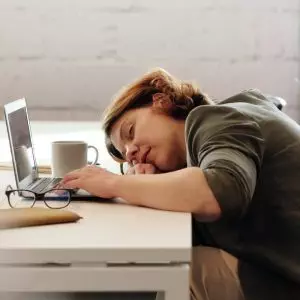
Does your partner say you’re snoring loudly or that you stop breathing during sleep? Waking up with headaches or dry mouth? These can be signs of sleep apnea. Sleep apnea and snoring often go together. Acupuncture and TCM offer sleep apnea treatment and CPAP alternatives to help you stop snoring and get more restful sleep.
Sleep apnea, or obstructive sleep apnea (OSA), is a common breathing disorder that occurs when you are sleeping. When you have apnea, your breathing can stop and start repeatedly during the night due to throat muscles relaxing and blocking your airway while you sleep.
Can you have sleep apnea without snoring? Snoring is just one sign of sleep apnea. It is possible to snore and not have sleep apnea, and it is possible to have sleep apnea and not snore.
One type of sleep apnea, called central sleep apnea (CSA), is less common but particularly dangerous, because in these cases the brain is not automatically sending signals to start breathing again when it stops. With CSA, a person may not make any of the loud snoring sounds usually associated with obstructive sleep apnea.
The overall symptoms of obstructive sleep apnea and central sleep apnea are similar. With both types, sleep is interrupted throughout the night, as the lack of oxygen triggers a reflex that wakes you up, perhaps for just a second or two, so that you start breathing again. Most people are not consciously aware of this survival instinct when it happens.
Top 10 Sleep Apnea Symptoms
Many people suffer from sleep apnea without being aware of it, because if you don’t have another person observing what is happening while you’re sleeping, you may not realize that there is something wrong with your nighttime breathing and sleep patterns.
If you have any of these signs of sleep apnea, you may need to seek sleep apnea testing and treatment:
- Suddenly waking up gasping, choking, or feeling shortness of breath
- Episodes of stopped breathing during sleep
- Snoring while sleeping, loud snoring
- Dry mouth, waking up with a sore throat
- Insomnia, trouble staying asleep
- Sleepy during the day, daytime drowsiness, hypersomnia
- Difficulty concentrating, trouble focusing
- Morning headaches, headache upon waking
- Moodiness, mood swings
- High blood pressure
It is important to seek help to resolve sleep apnea, because it has a negative impact on your ability to get restful sleep. You are likely to feel fatigued, foggy-headed, and irritable as you go about your daily routine. Sleep apnea can also compromise your cardiovascular health, increasing the chances of high blood pressure and arrhythmia.
What Causes Sleep Apnea?

Anyone can have sleep apnea, including children. However, there are some risk factors that might lead to you being more likely to experience sleep apnea. These include:
- Smoking – people who smoke are much more like to have sleep apnea
- Age – older people are more likely to have sleep apnea
- Obesity – being overweight can increase the chances of sleep apnea
- Gender – men are much more likely that women to have sleep apnea
- Allergies, asthma, or other chronic nasal congestion issues or lung disease
- Impeded airway – tonsils, adenoids, a narrow throat, or a thicker neck can affect breathing during sleep
- Alcohol or other medications, including opioids, which can have a sedative effect
- Heart problems or diabetes
- PCOS – there is a high incidence of sleep apnea among people with PCOS
- Sleep position – sleeping on your back may increase the chance of snoring
Sleep Apnea Treatment
To determine if a person has sleep apnea and identify the specific type, doctors often conduct a sleep study session. During this session, individuals spend the night at a sleep center where their heart and breathing functions are monitored.
CPAP machines are widely regarded as the most effective treatment for sleep apnea. These anti-snoring devices can help promote more restful sleep, and reduce the risks associated with sleep apnea, such as heart disease.
However, a CPAPmachine does not address the underlying causes of obstructive sleep apnea (OSA) or central sleep apnea (CSA). Some individuals may experience issues like swallowing air, leading to gas and bloating. CPAP masks, which need to be strapped on, can also be uncomfortable. The noise of the machine can be disturbing both the user and their bed partner. It can be challenging for some patients to adapt to using the machine regularly, and without consistent use, they may not reap the full health benefits.
Alternatively, there are oral appliances available, such as mandibular advancement devices (MAD), which are essentially a sleep apnea mouth guard, worn to reposition the jaw and tongue, keeping the airway open during sleep. These appliances can also be effective in improving breathing during sleep. Compared to CPAP machines, they are quiet, discreet, and cost-effective. However, the key consideration is whether an individual can tolerate wearing the device, as some may experience dental pain, TMJ jaw pain, dry mouth, or excessive saliva.
Surgery for snoring and sleep apnea is typically recommended only when other treatment methods have proven ineffective. Various surgical procedures involve the removal of soft tissues, such as the uvula, tonsils, and adenoids.
TCM methods like acupuncture offer CPAP alternatives that may help you sleep better without uncomfortable devices or surgery.
Can Acupuncture Help Sleep Apnea?
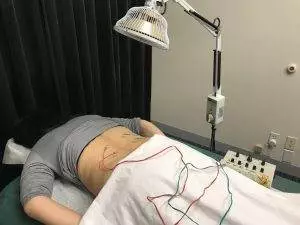
According to the principles of Traditional Chinese Medicine (TCM), the spleen and stomach play a crucial role in converting nutrients from food and fluids into vital life energy known as Qi. This Qi is then transported to the heart and lungs.
TCM considers sleep apnea to be linked to issues such as phlegm accumulation and Qi stagnation, which are also associated with fatigue and insomnia. When phlegm gathers and stagnates in the spleen, it hinders the lungs from receiving the necessary Qi. Therefore, one possible explanation for sleep apnea is Spleen Deficiency accompanied by Qi Stagnation. This condition, characterized by dampness and phlegm, often leads to feelings of heaviness and bloating.
In certain cases, excessive internal heat can contribute to the problem. Snoring, excessive sweating, and waking up with a sore throat indicate the need to eliminate heat and toxins from the body.
A systematic review of studies, using acupuncture to treat obstructive sleep apnea concluded that acupuncture was a safe and effective way to reduce the number of breathing disturbances during sleep.
A study of patients in China with sleep apnea who were treated with acupuncture and herbs experienced a marked improvement in deep sleep, oxygen levels, and blood pressure.
Various trials have shown that acupuncture, and in particular electro-acupuncture, can be just as or even more effective that CPAP machines at improving oxygen saturation in the blood.
This can be great news for people who are looking for an alternative to CPAP machines, which can be difficult to adjust correctly and uncomfortable to use, not to mention expensive and potentially disturbing to one’s sleeping partner.
Acupuncture Near Me for Sleep Apnea
If you or your partner is losing precious, quality sleep to sleep apnea and/or snoring, it is important to get help. While conventional treatments work for some people, many people find CPAP machines and other devices for sleep apnea do not help them get the rest they need. Why not give acupuncture treatment for sleep apnea a try? TCM can help you get better sleep without discomfort or unwanted side effects.
*This article is for education from the perspective of Traditional Chinese Medicine only. The education provided by this article is not approved by FDA to diagnose, prevent, treat and cure human diseases. It should not stop you from consulting with your physician for your medical conditions. Traditional Chinese Medicine is based on Qi, which is an invisible force that usually cannot be observed by modern science. Because science focuses on testing ideas about the natural world with evidence obtained through observation, these aspects of acupuncture can’t be studied by science. Therefore acupuncture and Chinese herbs are often not supported by double-blind, randomized trials, and they are considered alternative medicine therapies in the United States.
How to Treat POTS With Acupuncture and TCM
By Qineng Tan, L.Ac., Ph.D. and Xiaomei Cai, L.Ac., Ph.D.

Do you often feel shaky, like you’re fainting, or experience dizziness, especially when you’re getting up from sitting down or lying down? Do you feel like you have a rapid heartbeat, or shortness of breath? Postural orthostatic tachycardia syndrome, known as PoTS syndrome, or POTS, is a condition that causes unstable blood pressure when changing positions. Acupuncture and TCM can help relieve dizziness and other symptoms of POTS.
Postural tachycardia syndrome (or postural orthostatic tachycardia syndrome) is a chronic disorder related to the autonomic nervous system that causes people to experience dizziness and increased heart rate when they move into an upright position; this is known as orthostatic intolerance, which is a type of dysautonomia.
POTS syndrome is fairly common, affecting up to 3 million people in the U.S. POTS occurs more often in people assigned female at birth, and often first shows up during the teenage years.
The most common symptom of POTS is feeling light-headed when changing your position from sitting to standing, or when getting up from lying down.
Whenever we have been sitting or lying down for a while, blood pools in the lower parts of the body. When we get up, the autonomic nervous system starts a series of actions to move blood back up into the top half of the body. This involves squeezing blood vessels, and releasing adrenaline and norepinephrine, to make the heart beat faster.
When a person has POTS, more blood tends to pool in the legs, and the nervous system process doesn’t cause the normal, quick response from the blood vessels, so more hormones are released, which can cause the person’s heart rate to increase, and a dizzy, faint feeling.
Medical science has not yet discovered exactly what causes POTS, but there are different characteristics that allow for categorizing these different types of POTS syndrome:
- Neuropathic POTS – damage to small fiber nerves that control blood vessel constriction in the abdomen and limbs
- Hyperadrenergic POTS – when a person has elevated levels of norepinephrine
- Hypovolemic POTS – when a person has unusually low blood levels
- Secondary POTS – when POTS symptoms are related to another condition that causes neuropathy, such as Lyme disease, diabetes, or autoimmune disorders like Lupus or celiac disease.
While POTS is not rare, it can be difficult to get a diagnosis, because the criteria can be vague, and the symptoms can so often be related to other conditions, or just seem “normal.”
For many people, POTS is truly debilitating and can have a serious, negative impact on daily life. It can also contribute to feelings of anxiety and depression. Acupuncture and TCM offer an adjunct or alternative treatment for POTS that can help with dizziness, irregular heartbeat, digestive problems, muscle weakness, migraines, trouble sleeping, and other symptoms, all at the same time.
Top 10 POTS Symptoms
The primary symptoms of POTS are related to the cardiovascular system: rapid heartbeat, and dizziness. However, there can be many other POTS symptoms.
- Irregular heart rate, rapid heart rate, fast heartbeat, chest pain, heart palpitations
- Dizziness, especially when standing up or getting up from lying down, feeling faint
- Breathing problems: hyperventilating, bronchial asthma, shortness of breath
- Constipation, diarrhea, nausea, abdominal pain
- Muscle weakness, muscle pain, tremor
- Skin rash, flushed face, flushing, sweating
- Migraine headaches
- Cognitive issues, brain fog, difficulty concentrating
- Trouble sleeping
- Frequent urination, nocturia
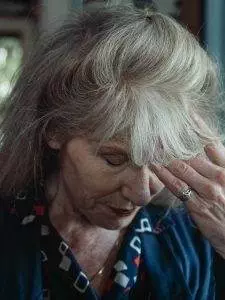
Other symptoms of POTS may include: tinnitus (ringing in the ears), blurred vision, red or purple appearance of the legs when standing up, and a “jittery” feeling or general nervousness.
As with many syndromes, different people will experience different combinations of symptoms. While dizziness and rapid heartbeat are the signs most commonly associated with POTS, many people with POTS will also suffer from abdominal pain and gastrointestinal problems, perhaps without realizing there is a correlation.
POTS symptoms may resemble many other conditions, such as:
- Chronic fatigue syndrome, ME/CFS
- Graves disease
- Other heart conditions that involve tachycardia
- Anemia
- Stroke
- Epilepsy
- Adrenal fatigue
- Drug use
- Eating disorders
- Benign paroxysmal positional vertigo
- Ménière’s disease
Because POTS is often misunderstood or misdiagnosed, many patients will be offered medications to manage headaches, vertigo, or depression, which may not offer much relief.
Medical Treatment for POTS
As there is no definitive cure for POTS, Postural orthostatic tachycardia syndrome treatments typically aim to manage symptoms and improve quality of life.
Dietary modifications are a fundamental component of POTS management. Adequate daily fluid intake is crucial. A diet that includes plenty of salt helps maintain blood volume, aiding blood flow to vital organs. Patients are typically advised to avoid alcohol and carefully monitor caffeine intake, as these substances can exacerbate symptoms.
Exercise is gradually introduced, often starting in reclined or horizontal positions, with the goal of increasing exercise tolerance over time. Physical therapy helps retrain the autonomic nervous system, enhancing blood circulation.
Compression garments can help reduce blood pooling, and specific postures while sitting or sleeping may alleviate symptoms. Identifying triggers such as prolonged sitting, heat, or certain drugs allows for better symptom control. Regular monitoring of blood pressure and pulse, along with adequate sleep hygiene, aids overall well-being.
While no single pharmacological solution is universally effective, some medications may be prescribed based on individual symptoms. These may help to improve blood volume, aid sodium retention, reduce heart rate, and enhance blood vessel constriction.
While POTS symptoms may intermittently improve with medications and lifestyle modifications, the underlying cause of POTS may persist. Acupuncture and TCM treatment can provide a holistic solution for individuals living with POTS, which may help to address the root causes of this syndrome.
Can Acupuncture Help POTS?
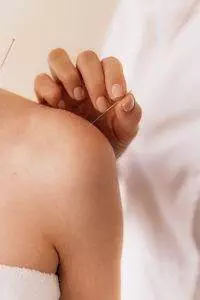
POTS is a kind of Dysautonomia; this is a general term that describes conditions that involve malfunctioning of the autonomic nervous system. This causes people’s bodies to have problems with regulating the sorts of functions that are typically automatic, like the beating of the heart, circulation of blood, breathing, and temperature control.
Western medicine offers some treatments that can help address individual symptoms of dysautonomia, but it does not have a way of treating the root of the problem. It can be difficult to get proper treatment, because people who suffer from POTS and other kinds of dysautonomia often seem reasonably healthy, and their complaints—dizziness, headaches, mental health problems—seem vague.
Acupuncture and TCM have been used to treat these kinds of problems for centuries. Acupuncture treatment can help provide positive effects on the subtle communications of the nervous system, as well as the heart rate, and physiological symptoms of anxiety. According to TCM theory, several organ systems may be involved and need support: not only the heart, but also the kidneys or spleen.
Studies have shown that acupuncture for dysautonomia can help relieve symptoms like heart palpitations, insomnia, and digestive problems.
A qualified acupuncturist is also well-versed in nutrition and can offer more detailed information regarding dietary and lifestyle changes that can help each individual patient. Your TCM provider will spend time learning more about you, so that they can offer personalized advice.
Acupuncture Near Me for POTS in West Los Angeles
TCM and acupuncture can help people with all types of autoimmune disorders, nerve disorders, and conditions involving fatigue and dizziness that may be difficult to solve with conventional methods. Acupuncture works on a deeper, more subtle level to help address complex syndromes. If you are regularly experiencing trouble with feeling light-headed, having unexplained headaches and sleep problems, it may be time to seek a more holistic alternative treatment.
*This article is for education from the perspective of Traditional Chinese Medicine only. The education provided by this article is not approved by FDA to diagnose, prevent, treat and cure human diseases. It should not stop you from consulting with your physician for your medical conditions. Traditional Chinese Medicine is based on Qi, which is an invisible force that usually cannot be observed by modern science. Because science focuses on testing ideas about the natural world with evidence obtained through observation, these aspects of acupuncture can’t be studied by science. Therefore acupuncture and Chinese herbs are often not supported by double-blind, randomized trials, and they are considered alternative medicine therapies in the United States.
How to Treat Chronic Fatigue Syndrome With Acupuncture and TCM
By Xiaomei Cai, L.Ac., Ph.D. & Qineng Tan, L.Ac., Ph.D.
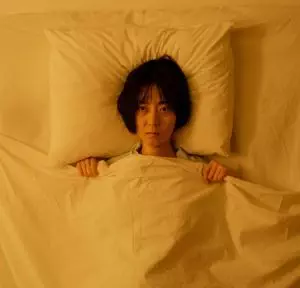
Chronic fatigue syndrome (CFS), also known as myalgic encephalitis (ME/CFS), is a condition marked by extreme fatigue that doesn’t get better, even with rest, and gets worse with physical and mental exertion. Chronic fatigue is not well understood by medical science, but acupuncture and Chinese medicine for chronic fatigue syndrome symptoms can be an effective treatment option.
People with chronic fatigue syndrome are always tired, even after getting a normal amount of sleep, and the condition persists for weeks, months, or years. Other chronic fatigue symptoms include body aches, cognitive problems, vision problems, and emotional or mental health problems, like depression and anxiety.
If a person feels tired all the time, with no medical explanation, for six months or more, and has several other chronic fatigue syndrome symptoms like dizziness, difficulty concentrating, headaches, or sensitivity to light, then they might be diagnosed with CFS, or myalgic encephalitis (ME CFS).
By definition, a syndrome is a collection of symptoms that often appear together in combination, for which the exact explanation is unknown. Chronic fatigue has been considered a syndrome for some time, but has more recently been given the designation of a “disease;” hence, the newer term “myalgic encephalitis,” which refers to muscle pain and inflammation of the brain and spinal cord.
Chronic fatigue syndrome symptoms can be very similar to those of fibromyalgia. People with fibromyalgia also experience severe fatigue, but the primary symptoms of fibromyalgia are musculoskeletal pain that comes and goes all over, especially in “tender points” around the major muscles and joints, along with swelling and inflammation. It is possible to have both ME/CFS and fibromyalgia.
Women are much more likely to have chronic fatigue than men. MECFS can begin to appear at any stage of life, but most usually develops in adulthood. It is estimated that up to 90% of people who have chronic fatigue go undiagnosed.
ME/CFS is a serious and disabling condition that can interfere with even the most basic daily activities. People with chronic fatigue may be able to participate in some events where they exert themselves mentally and/or physically, but afterwards, they will feel completely wiped out and have to take time to recover, often confined to bed. This is called post-exertional malaise (PEM).
Top 10 Chronic Fatigue Syndrome Symptoms
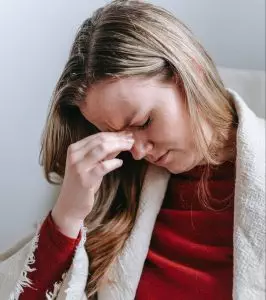
The most common ME/CFS symptoms include:
- Fatigue, tired all the time, weakness
- Sensitivity to light
- Trouble concentrating, hard to focus, memory problems, confusion
- Dizziness, especially when getting up from lying down
- Headaches
- Muscle aches, body ache, muscle weakness, joint pain
- Enlarged lymph nodes in neck or armpit area, sore throat
- Tired after exercise or mental exertion (post-exertional malaise)
- Depression, mood swings, moodiness
- Insomnia, sleep problems
Other signs of chronic fatigue syndrome may include: fever, abdominal pain, weight loss or weight gain, allergies, rash, rapid heart beat, and night sweats/hot flashes.
What Causes Chronic Fatigue?
The cause of ME/CFS is not known. Immune system dysfunction, the aftereffects of having a virus, and psychological factors have all been associated with the development of chronic fatigue.
Some people begin to have symptoms of chronic fatigue after having a viral infection, such as Epstein Barr, mononucleosis, or herpes. Postural orthostatic tachycardia syndrome (POTS) is also strongly associated with chronic fatigue.
While it does seem that some people who suffer from CFS also have immune system problems, chronic fatigue is not considered to be an autoimmune disorder in and of itself. As with other conditions like lupus or fibromyalgia, CFS sometimes appears after a person has gone through some sort of emotional trauma or physical injury.
Some people with chronic fatigue have hormone imbalances related to pituitary hormone, adrenal hormone, or hypothalamus hormones, but it is not understood how these might be related to their condition. Diabetes, anemia, or hypothyroidism can also create hormonal imbalances that can contribute to chronic fatigue.
In some cases, chronic fatigue could be due to a sleep disorder, such as sleep apnea or chronic insomnia. Long-standing mental health issues like depression, anxiety, or PTSD can interfere with sleep and hormone responses, contributing to the chronic fatigue syndrome symptoms.
Treatment for Chronic Fatigue Syndrome Symptoms

There is no clear treatment protocol within conventional Western medicine for ME/CFS. A doctor may diagnose myalgic encephalitis if they have ruled out other possibilities and then try to recommend medications or various types of therapy to help people deal with the symptoms of chronic fatigue.
Pain relievers or NSAIDs will often be the standard recommendation for handling ME/CFS related pain like headaches or muscles aches.
Doctors may prescribe antidepressants as a way of helping patients cope with depression and anxiety related to chronic fatigue. However, these medications can sometimes cause side effects that will exacerbate the chronic fatigue rather than helping it.
Some doctors have tried treating CFS with antiviral medications, corticosteroids, or thyroid hormone medications. None of the pharmacological interventions that have been used to treat chronic fatigue syndrome have proved to be very effective.
Thus, many patients with ME/CFS consider turning to alternative medicine or complementary therapies to relieve CFS symptoms. Acupuncture is now widely recognized as an alternative therapy for chronic fatigue.
Can Acupuncture and Chinese Medicine Help Chronic Fatigue Syndrome?
Traditional Chinese medicine is well suited to treatment for ME/CFS. Overall, TCM philosophy pays close attention to the subtle balance of energy, known as Qi, within the body as a whole, as well as within the various organ systems. By observing the specific symptoms each person experiences as part of chronic fatigue syndrome, we can pinpoint which organ systems are deficient and need strengthening.
Classic TCM patterns related to chronic fatigue diagnosis include:
- Spleen Qi deficiency
- Liver Qi stagnation
- Kidney deficiency
- Yin deficiency
- Heat toxicity
- Phlegm obstruction/dampness
Latent heat and dampness are sometimes the long-term effects of a viral infection or other illness, or a long period of emotional stress. These conditions originate from an external pathogenic factor, but then cause a series of imbalances which weaken the kidneys and other organs over time. Acupuncture treatment and herbs can help reduce inflammation and strengthen Qi.
A TCM doctor will choose acupuncture points and a combination of herbs that will help harmonize the affected systems. With herbs, we are able to get nutrients into the body beyond what you can do with foods alone. A balanced diet that cools heat and tonifies the organs will also be important for recovering strength and energy.
One controlled trial found that four weeks of acupuncture treatment led to improvements in CFS symptoms.
A systematic review of studies regarding acupuncture treatment for ME CFS showed a reduction in the severity of fatigue.
A study using acupuncture and moxibustion treatment for CFS showed a 90% effective rate, with half of the patients feeling that their CFS was “cured.”
Another study involving acupuncture and moxibustion found that the moxa treatment in particular became more and more effective as treatment sessions continued past the 10th treatment. Moxibustion was shown to have an effect on the vagus nerve, which controls the parasympathetic nervous system.
How long it takes to get results from acupuncture treatment for chronic fatigue will vary from person to person, depending on how long the person has been experiencing CFS, and how deeply the organ systems are affected. TCM treatment has a cumulative effect which strengthens over time and several sessions.
Acupuncture Near Me for Chronic Fatigue Syndrome (ME/CFS) in the Los Angeles Area
ME CFS is far more common than statistics show, because many people suffer in silence and invisibility. Now, many people are struggling with chronic fatigue after having COVID-19. TCM modalities like acupuncture, Chinese herbs, and moxibustion, can help relieve fatigue, depression, mental fogginess, poor sleep, and other symptoms of CFS. If you or someone you love has been feeling exhausted for months without improvement, it may be time to consider trying acupuncture for chronic fatigue.
*This article is for education from the perspective of Traditional Chinese Medicine only. The education provided by this article is not approved by FDA to diagnose, prevent, treat and cure human diseases. It should not stop you from consulting with your physician for your medical conditions. Traditional Chinese Medicine is based on Qi, which is an invisible force that usually cannot be observed by modern science. Because science focuses on testing ideas about the natural world with evidence obtained through observation, these aspects of acupuncture can’t be studied by science. Therefore acupuncture and Chinese herbs are often not supported by double-blind, randomized trials, and they are considered alternative medicine therapies in the United States.
How to Treat Huntington’s Disease With Acupuncture and TCM
By Qineng Tan, L.Ac., Ph.D. and Xiaomei Cai, L.Ac., Ph.D.
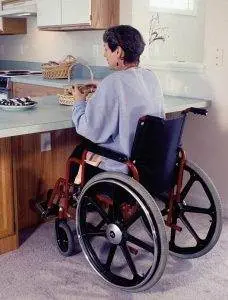
Huntington’s disease is a rare genetic disorder that causes progressive neurodegenerative disease. A neurological disorder, Huntington’s causes damage to brain cells, which leads to physical symptoms like tremor, cognitive problems, and mental disorders, including feelings of depression.
Signs of Huntington’s disease (HD) can begin to show up at any time after age two, and in some cases, a child may develop juvenile Huntington’s disease. Most often, though, a person does not begin to have symptoms of Huntington’s disease until adulthood, usually when they are in their 30s or 40s. Huntington’s is a progressive disease in which symptoms become increasingly severe over time.
Medical science does not currently have a cure for Huntington’s, nor a treatment that will halt the progression of Huntington’s disease. Patients may receive treatment in the form of medications and physical therapy to help control physical symptoms like shaking hands and involuntary movements. They may also be prescribed psychiatric medications to try to help with depression and anxiety.
Acupuncture and TCM can be an effective adjunct and alternative treatment for Huntington’s disease, helping to protect and stimulate the nervous system. TCM can also help address mental health and emotional disorders, like depression, anxiety, and mood swings.
Huntington’s Disease Symptoms
People with Huntington’s disease may start off having a variety of mild symptoms. Over time, the symptoms may change, with some coming or going, and some getting worse. Signs of Huntington’s disease can be related to involuntary movements of the body, cognitive decline that affects a person’s thinking processes, and psychiatric disorders that cause emotional upset. Some of the most common symptoms of Huntington’s disease include:
- Uncontrollable movements: involuntary jerking of the limbs, or writhing, also known as chorea
- Stiff limbs, muscle stiffness, neck stiffness
- Tremor, shaky hands, difficulty holding things
- Slow or unusual eye movements
- Problems with balance or walking
- Difficulty swallowing
- Speech problems, slurred speech
- Having a hard time focusing on a a task
- Having a hard time finding the right words or processing information
- Getting completely caught up with a task or thought pattern
- Impulsive behavior or emotional outbursts
- Lack of awareness of how one is behaving or one’s own changing abilities
- Feelings of apathy, sadness, depression, suicidal ideation
- Manic behaviors or OCD (obsessive-compulsive disorder)
- Trouble sleeping, insomnia
- Extreme fatigue
- Weight loss
Symptoms of Huntington’s disease worsen gradually over time, until ultimately, a person will need assistance to move and eat.
What Are the 5 Stages of Huntington’s Disease?
Huntington’s is a progressive disorder of the brain that causes symptoms to increase in severity over the course of several years. The progression from experiencing mild symptoms to needing assistance due to disability could take 10 years, or a person might live another 30 years.
Sometimes you will hear doctors refer to 3 stages of Huntington’s Disease, or the following 5 stages:
- Preclinical Stage – during this time, a person with Huntington’s may begin to notice mood swings, irritability, and other emotional and cognitive issues beginning to develop, but they have not yet been diagnosed with Huntington’s.
- Early Stage – as physical symptoms like tremors and trouble with eating and sleeping begin to become more and more noticeable, a person will seek medical help and be diagnosed. At this point, they can still carry on with most normal activities without help.
- Middle Stage – during the middle stages of Huntington’s a person will begin to need assistance with things like driving and domestic tasks, as they may not be able to coordinate movements reliably or think through problems or take in new information.
- Late Stage – as Hungtington’s disease progresses further, a person may have memory loss, dementia, and changes in personality. They will likely be bedridden and need help with eating, possibly requiring a feeding tube because of trouble swallowing.
- End of Life Stage – there comes a point when a person with Huntington’s will need end of life care, either in a hospital or at home, when they will need to be as comfortable as possible. The most common cause of death with Huntington’s is pneumonia, which can happen when a person aspirates food particles into the lungs.
How is Huntington’s Disease Inherited?
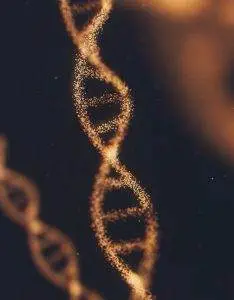
Huntington’s disease is a type of autosomal dominant disorder, which means that a person only needs to inherit one dominant gene from one parent in order to inherit this disorder. If a person has HD, there is a 50% chance that they will pass it on to a child. If a child of a person with HD does not inherit the gene, and therefore does not have HD, then that means they will not pass it on to their children. It is rare, but possible, for a person to be born with a new mutation in the specific gene, and so does not actually inherit HD from a parent.
Because HD typically does not begin to show up until close to middle age, some people who know that they may have the genetic mutation will have genetic testing for Huntington’s disease. This test will tell most people whether or not they will begin to develop Huntington’s symptoms as they age. However, there is a “gray area,” in which a person may have some of the mutated sequencing in their genetic makeup, but not enough to necessarily lead to the development of the disease. These people can still pass on the mutation to their children, and they may have a less severe form of Huntington’s, and/or not develop symptoms until later in life.
Can Acupuncture Help Huntington’s Disease?
Scientific research has been demonstrating more and more that acupuncture can help with many conditions by maintaining the health and connectivity of brain cells and nerve cells. Cells are constantly going through processes of generation and degeneration. The stimulation of certain acupoints has been shown to have a positive effect on these processes, which can be beneficial for people with neurological disorders like HD and Parkinson’s.
Even though we know that Huntington’s and Parkinson’s are specifically related to protein production, we also know that disease is not merely about one small, isolated thing happening in the body. We must take the whole person into account. Stress and many other factors also play a role in how a disease affects each individual. Acupuncture can be a helpful modality that reduces stress in the body and facilitates regeneration and protection of cells.
With TCM, we are able to address the physical, mental, and emotional aspects of Huntington’s disease all at the same time.
Chinese herbs have traditionally been used to help symptoms such as tremors, stiff limbs, muscle weakness, and slow movements. While from the medical point of view these problems are related to the nervous system, in TCM theory we also see them as being related to deficiencies in the kidney Qi, and excess wind. Therefore, herbs that help strengthen the Kidneys and dispel wind may be used in different combinations to treat conditions like Huntington’s disease.
Acupuncture treatment has been shown to help reduce tremors and shaky hands. One study showed that Chinese herbal preparations were effective at helping to reduce involuntary movements. Another study showed that herbs helped with the normal production of proteins and brain cell function.
Neurological Treatment With Acupuncture

Acupuncture and TCM can help with many different kinds of neurodegenerative disorders, whether they are caused by genetics, autoimmune disease, or some other neurological problem.
Neurodegenerative diseases cause the degeneration and death of neurons, or brain cells that communicate with the nervous system. In that sense, Huntington’s disease bears some similarities to other neurodegenerative diseases like:
- Parkinson’s disease
- Alzheimer’s disease
- ALS (Lou Gehrig’s disease)
- Spinal muscular atrophy
- Essential Tremor
- Multiple Sclerosis (MS)
- Bell’s Palsy
- Guillain-Barre syndrome
Many of these conditions can be helped with acupuncture, which is known to help improve the health of the brain, nerves, spinal cord, and the electrical impulses that create connectivity and functionality in the movements of the musculoskeletal system. TCM modalities can also help to relieve stress, improve sleep, boost cognitive function, and regulate mood swings.
Acupuncture Near Me for Huntington’s Disease, Los Angeles Area
Huntington’s disease is a progressive illness, and it becomes harder and harder for a person with HD to communicate what they are feeling. People with Huntington’s may experience both physical and emotional pain. Patients with Huntington’s need a caring team of healthcare providers who can help treat the disease, but also help their emotional and mental health.
At Art of Wellness, we have over 30 years of experience helping people with neurodegenerative disorders feel more comfortable and live the fullest life possible.
*This article is for education from the perspective of Traditional Chinese Medicine only. The education provided by this article is not approved by FDA to diagnose, prevent, treat and cure human diseases. It should not stop you from consulting with your physician for your medical conditions. Traditional Chinese Medicine is based on Qi, which is an invisible force that usually cannot be observed by modern science. Because science focuses on testing ideas about the natural world with evidence obtained through observation, these aspects of acupuncture can’t be studied by science. Therefore acupuncture and Chinese herbs are often not supported by double-blind, randomized trials, and they are considered alternative medicine therapies in the United States.
How to Detox With Acupuncture and TCM
By Xiaomei Cai, L.Ac., Ph.D. & Qineng Tan, L.Ac., Ph.D.

Why is it important to do a detox or body cleanse periodically? When done with the right support from an acupuncturist near me, detoxing can help improve your digestion, immune function, fertility, and many other aspects of your health. Store bought colon cleanse products or a juice cleanse won’t really do the job, though. A detox program with acupuncture and Chinese herbs will do more to optimize your health than just a detox diet will.
When we recommend our Detox Program at Art of Wellness, we are not talking about fasting or detox drinks, like a master cleanse. The goal of our program is to detoxify the organ systems of the body: it’s a liver detox, kidney cleanse, lungs, heart, and spleen. This is a full body cleanse designed to give you a health reset. According to TCM philosophy, your body knows how to repair and renew itself, but it cannot do this job when it is congested and out of balance.
In TCM, we have a broad concept of what “toxins” are and how they can affect our bodies and our health. Toxic chemicals that come from our environment, such as food additives, pesticides, cleaning products, and beauty and hygiene products are certainly part of the problem. Drugs, medicines, alcohol, and unhealthy foods can also be toxic. So can behavioral habits, like sitting and looking at our screens and devices too long.
But our own bodies produce toxins, too. The waste products our organs create are “toxic,” and if they are held in the body too long without being adequately cleared out, they can negatively impact organ function. Imbalances in the system can cause conditions of excess heat or phlegm, which can lead to all kinds of problems with both your physical and mental health.
Stress, lack of sleep, and extreme emotions can also contribute to toxic conditions in the body and mind. When the organ systems are out of balance, the body is under constant pressure to keep functioning, but we do not feel our best.
Signs you need to detox include:
- Fatigue, low energy, tired all the time
- Foggy head, memory problems, trouble concentrating
- Constipation
- Trouble sleeping, insomnia
- Weight gain
- Hair loss
- Hormone imbalances
- Signs of rapid aging
- Skin rash, acne
- Fingernails are brittle, lined or ridged
- Severe PMS symptoms or menopause symptoms
- Headaches, migraine
- Water retention, edema, swelling in extremities
Inflammation is largely created by toxic conditions in the body, and most pain conditions and chronic illnesses stem, at least in part, from inflammation somewhere.
Why You Need a Liver Detox
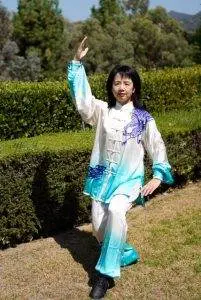
In conventional medicine, we think of the liver as being a sort of filter that removes toxins from the blood and helps metabolize fat. In TCM theory, we consider the liver to be the storehouse and distributor of blood; therefore, it also plays a crucial role in the menstrual cycle. The liver is also strongly connected to a person’s emotional life.
Stress, lack of sleep, too much sugar, alcohol, fatty, fried foods, pharmaceutical medicines, and recreational drugs all tax the liver above and beyond what it needs to do just to keep the blood flowing to nourish the body. When too many demands are placed on the liver, it can cause all kinds of symptoms, including: fatigue, insomnia, and headaches. Feelings of anger, frustration, anxiety, and irritability may arise. Conversely, when a person is feeling bitter and resentful, and isn’t able to express it, those unresolved emotions may begin to cause trouble with liver function.
Just as the liver governs the blood, in TCM, the kidneys govern the water of the body, controlling elimination through the bladder, and maintaining blood pressure by keeping the right amount of water in the bloodstream. Signs that the kidneys are not balanced include: problems with blood pressure, edema, puffiness in the face or extremities, UTIs, chronic fatigue, and menopause symptoms, like dryness and hot flashes.
Detoxing the organ systems, including the liver and kidneys especially, can help rejuvenate the digestion and allow better nutrition to reach all parts of the body, as the quality and flow of blood and other bodily fluids will be improved.
Making sure that your excretory system is in good working order before starting a cleanse is important. If you are already having problems with constipation, for example, we will want to make sure we get things moving before we start cleansing the organs. Our detox also focuses on the body’s largest excretory organ: the skin.
Top 10 Reasons To Detox

It is a good idea for everyone to detox periodically; detoxing every six months is reasonable for most people. Sometimes we will specifically recommend a detox for a patient when they are struggling with a particular health problem, or if they are planning a pregnancy.
Detoxing can help:
- Boost Immunity – a cleanse will help get your lymphatic system, which produces and transports immune cells and removes waste from cells, moving, improving the efficacy of your immune system.
- Break Free From Addiction – if you are ready, a commitment to the detox program and food plan can help you end patterns of substance abuse, drug use, alcohol addiction, smoking, and other types of dependency.
- Infertility – We often advise people who come to Art of Wellness for fertility treatment to begin with the Detox Program. Not only will this help increase the chances of conception occurring, whether naturally or with the aid of ART, but it will also lay the foundation for your child’s health in the future.
- Improve sleep – This works both ways. In order for the body to do its routine daily work of removing toxic waste, it needs plenty of sleep. The Liver, in particular, is working hard through the night to clean and deliver fresh blood to the cells. Sleeping on your side enhances your body’s ability to do this work, allowing the internal organs to drain properly. When your body is functioning well, your sleep will be of better quality, more restful and refreshing.
- Improve skin and hair – Dull eyes and skin, dark circles or bags, puffiness, and thinning hair are signs of stagnant blood and Qi. Nutrients from the right foods and Chinese herbs help to nourish the skin, and clear heat, dampness, and dryness. When old cells are removed, hair and eyes can shine again. Acupuncture treatment can help stimulate collagen production, which also happens while you sleep.
- Weight loss – While our acupuncture detox is not about how to lose belly fat fast, many people will find that it gives them a good foundation for new eating habits. Detoxing the liver and kidneys will help your body metabolize fat better.
- Balance hormones – severe PMS symptoms, bloated stomach and mood swings, perimenopause symptoms, infertility in women and infertility in men (oligospermia) can all be improved when hormone function improves. Acupuncture treatment can also help relieve conditions like PCOS, fibroids/leiomyoma, and endometriosis for women, and BPH in men.
- Reduce inflammation – many illnesses and pain conditions are inflammatory in nature. If you are suffering from pain due to plantar fasciitis, gout, rheumatoid arthritis, tennis elbow, carpal tunnel syndrome, shoulder or hip pain, acupuncture can help.
- Increased energy – better nutrition, better circulation, better sleep, and better organ function will all work synergistically to help you feel more energetic.
- Chronic illness – many chronic illnesses are rooted in toxic conditions within the body or exposure to toxins. Hard-to-treat conditions like autoimmune conditions and other systemic problems may be helped with alternative medicine when conventional medical treatments have not been successful. We treat many conditions with acupuncture and herbs, such as: lupus, lyme disease, celiac disease, fibromyalgia, and Crohn’s disease. We also provide support for people going through cancer treatment.
7 Steps of Detox Program With TCM Acupuncture and Herbs
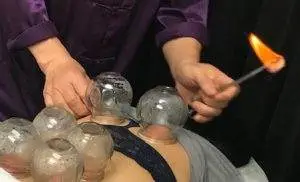
Pain and dysfunction occur when there is imbalance and when there are areas of stagnation within the body. Think of the metaphor of a house that needs to be deep-cleaned; there are dark corners of the body that have been ignored for a while, where dust and cobwebs have gathered. The Detox program reaches into these pockets of stagnation, sweeps them clean, and makes sure they get some fresh air and sunlight shining on them, in the form of invigorated Qi and blood.
- Acupuncture Treatments – the primary goal of acupuncture treatments during the detox phase is to get Qi moving freely, remove blockages, and to assist in elimination of toxins from the body.
- Cupping Treatment – the TCM modality of cupping creates a vacuum-like suction that moves Qi and blood from the innermost parts of the body outwards. During the detox program, cupping helps to pull toxins out of the lungs and other organs.
- Detox Herbs – the Chinese herb detox tea helps to clear heat and toxins from the body and improve digestion and elimination.
- Foot Pad Detox – detox foot patches, worn as you sleep at night and removed in the morning, help to pull toxins and fatty deposits from the body.
- Detox Bath – Sweating is an excellent way to remove toxins through the skin; this is why so many traditions rely on saunas and hot baths. Our herbal sachets allow you to enjoy a therapeutic herbal soak in your own bathtub.
- Exercise – Your acupuncturist will instruct you on how to practice daily exercises, based on QiGong movements, that will help to get Qi and blood moving.
- Nutrition – the food plan during the detox is based on whole grains, lean proteins, and plenty of vegetables, flooding your system with nutrients.
Detox Near Me Los Angeles, Westside
The beginning of the year, springtime, after recovery from a long illness, while preparing for a healthy pregnancy–anytime may be the right time for you to detoxify your system and get a fresh start. We recommend that you take the time to dedicate yourself to a week of cleansing with the Art of Wellness Detox Program at least twice a year for optimal health benefits.
*This article is for education from the perspective of Traditional Chinese Medicine only. The education provided by this article is not approved by FDA to diagnose, prevent, treat and cure human diseases. It should not stop you from consulting with your physician for your medical conditions. Traditional Chinese Medicine is based on Qi, which is an invisible force that usually cannot be observed by modern science. Because science focuses on testing ideas about the natural world with evidence obtained through observation, these aspects of acupuncture can’t be studied by science. Therefore acupuncture and Chinese herbs are often not supported by double-blind, randomized trials, and they are considered alternative medicine therapies in the United States.